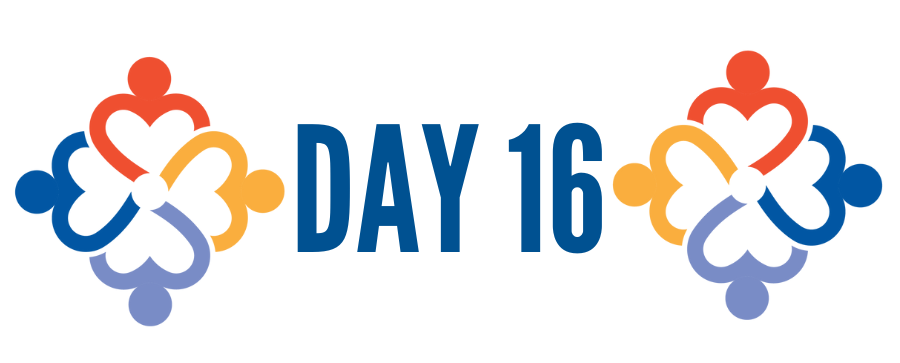
Day 16: Criminal Legal System
Today, we’ll explore the impacts of the criminal legal system on oppressed populations. Some who advocate for change in this system prefer the language of criminal legal system over criminal justice system to describe policing, prosecution, courts, and corrections because these systems disproportionately target and impact people with oppressed identities. This shift in language seeks to recognize and focus on the realities of the legal process that are sometimes difficult to reconcile with a shared understanding of justice.
Discrimination in housing, sentencing, and policing have been linked to disparities in involvement with the criminal legal system for Black, Indigenous, and other People of Color (BIPOC), particularly Black people, as well as people with disabilities, LGBTQIA+ people and others.
The following data from the Prison Policy Initiative show that compared to the 15% of the United States general population who are engaged at various states in the criminal legal system, including jail, prison, probation, and parole:
- 40% of people in state prisons have a disability
- 50% are women in state prisons
- 1/3 to 1/2 of people killed by law enforcement have a disability
- Children with disabilities are 400% more likely to be arrested in elementary school
- Black Americans represent 13% of the general U.S. population, but represent 37% of all people in prison or jail
- 48% of people serving life, life without parole, or “virtual life” sentences are Black
- Prison incarceration rate for Native people is 763 per 100,000 vs 350 per 100,000 for the nation as a whole
- 20% of youth in the juvenile justice system are lesbian, gay, bisexual, questioning, gender nonconforming, or transgender compared with 4-6% of youth in the general population
- Gay, lesbian, and bisexual individuals (with an arrest rate of 3,620 per 100,000) were 2.25 times as likely to be arrested in the past twelve months than straight individuals
The disparities in the criminal legal system are deeply tied to economic inequalities combined with bias, prejudice and systemic oppression. Fines, fees, and predatory pricing exist at every part of the criminal legal process. As an example, cash bail, a payment to the court, is sometimes required to allow individuals to await trial at home instead of in jail. As a result, people with fewer financial resources are less likely to be able to post bail and can spend 50 to 200 additional days in jail depending on the severity of the charge. And people who remain in jail before trial are more likely to be convicted and receive longer sentences (Consumer Finance, 2022).
In the 1970s, the Independent Living Movement worked to get people with disabilities out of institutions and living in their communities. In the 1980s and 1990s, criminal reform laws were passed that ultimately forced many people with disabilities back into institutions, this time jails and prisons, through the criminal legal system despite being no more likely to commit crimes.
What are your experiences with or perceptions of the criminal legal system? How does the information above match or not match your experiences or perceptions? Why might that be?
Today’s Challenge
Read:
One in Five: Ending Racial Inequity in Incarceration by Nazgol Ghandnoosh (Oct 2023) [10 min read] The first part is a four-part series highlighting the history of law enforcement and sentencing that have disproportionately and unfairly impacted communities of color.
Protected and Served? By Somjen Frazer, Richard Saenz, Andrew Aleman, and Laura Laderman (2022) [20+ min read] How do LGBTQ+ people and people living with HIV experience the criminal legal system? This survey report captures the often-untold stories of people interacting with police, experirences with crimes and hate incidents, court experiences and more.
Understanding the Policing of Black, Disabled Bodies by Vilissa Thompson (Feb 2021) [5 min read] Current data collection does not paint a picture that is inclusive of victims with disabilities including at the intersections of identity. This article outlines opportunities for increased data collection to better help us understand the impact of policing and its disparate impact.
Engage:
Visit Reimagining Justice and explore what you can do in your own community to be a change agent with a focus on solutions that are healing centered, restorative, and transformative.
Listen:
Justice in America Episode 28: School to Prison Pipeline The Appeal (Apr 2020) [1 hour 10 min listen] What is the school to prison pipeline, and how is it affecting children across America? On this episode of Justice in America, Josie and her co-host, Derecka Purnell, talk to Judith Browne Dianis, the executive director of the Advancement Project. They’ll discuss the forms that the school to prison pipeline takes, and the effects it has on poor, black, and brown kids in particular.
Discuss:
- What do you feel in your body when information you receive does not match the experiences you’ve had or stories you’ve been told?
- How have you benefitted from or been impacted by the criminal legal system?
- What do you know about your local criminal legal system? What are advocates who support more equitable outcomes for people with oppressed identities doing in your local community?
